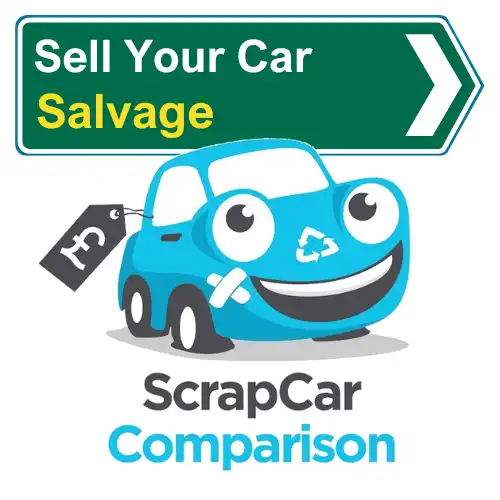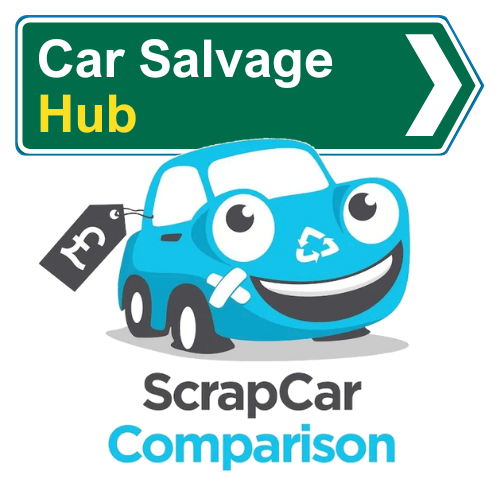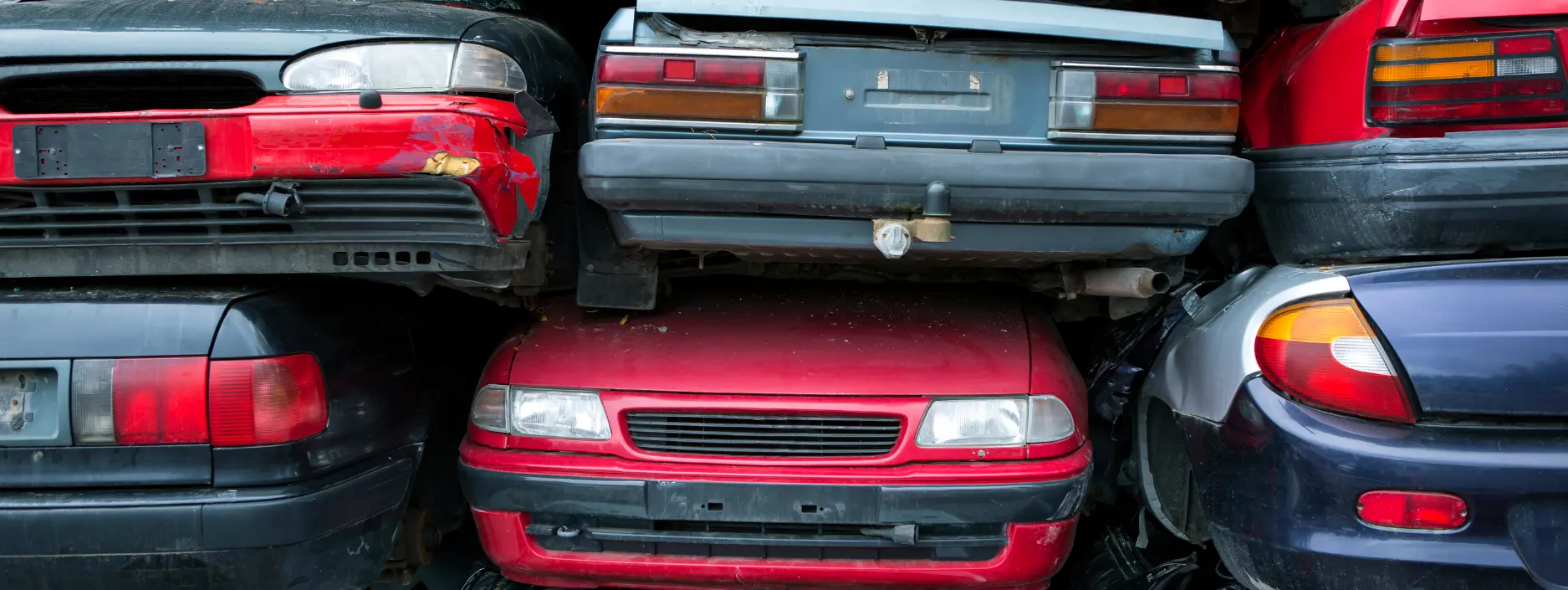Car maintenance can be hard work. Trying to keep the outside looking pristine and the inside moving like what it is – a well-oiled machine – will require hours of careful upkeep, per day in some cases. A blown tyre or cracked headlight cover are sudden problems that will need addressing, and a new set of brake pads can take a few miles of driving to ‘bed in’, but there is one thing that will damage and deteriorate your car slowly, over the course of months and years. That thing? Rust.
If your car is already covered in rust front to back, it might be too significant to make a fix worthwhile. Or perhaps rust is the least of your worries and your vehicle has a list of other problems as long as your arm. In any case, Scrap Car Comparison can help you sell it as scrap or salvage and get the best deals possible while you’re at it. You can get a quote in as little as 30 seconds and, thanks to our nationwide network of scrap dealers, you’ll be able to arrange for your vehicle to be collected at no extra cost no matter where you are in the UK. So, if it’s time to move on to something newer, find out how much your old car could be worth with Scrap Car Comparison today!

Different Types Of Rust On a Car
You may not already be aware that rust is not a ‘one size fits all’ kind of problem. In fact, cars that suffer may have different types of rust, be at different stages of rusting, or be less susceptible to particular types than other makes and models. There are three notable types of rust:
Surface Rust
This is the earliest stage of rusting, affecting only the top layer of your car’s metalwork. A slight bumpiness is a telltale sign that your car is beginning to rust.
Scale Rust
The next stage, scale rust has already begun to corrode at the metal. While the infrastructure of your car is probably not compromised yet, it will get to that stage if you don’t change the way your car is looked after.
Penetrating Rust
Unfortunately, it’s unlikely that you’ll be able to get back from this stage without replacing entire panels or parts. Penetrating rust will do severe damage to the metal that your car is made from.
 Interested in learning more? Take a look at our related articles for more helpful guidance and expert tips.
Interested in learning more? Take a look at our related articles for more helpful guidance and expert tips.
How To Get Rid Of Rust On a Car
As we mentioned above, advanced rust is far less likely to be removable or repairable, and will likely result in stripping out the afflicted parts entirely in order to replace them. However, if you want to try and save your vehicle, or better still, want to remove rust that’s not yet developed into a serious problem, we’ve got you covered. In a separate blog post, we’ve gone into great detail about how to remove rust from your car. You can find that guide here.
How To Treat Your Car Against Rust
Now that you know how to remove the rust from your car, you’ll want to know how you stop it from returning. One of the biggest causes of rust is, of course, metal coming into regular or continued contact with water. Naturally, this means that an essential part of keeping your car rust-free is to also keep it dry. There’s a little bit more to it than that, though; if you live near the sea, or have been driving on particularly wet surfaces, you’ll want to rinse your car first. This is to remove any miniscule particles that can speed up the corrosion process, with the most damaging of all being salt.
Once your car is dry, you can go the extra mile with your rust treatment and apply a coat of wax. This will stop further water from sitting on your car’s bodywork and slowly eating away at it. Then, if you want protection in all the nooks and crannies around your car, try oil (like WD40, for example) to prevent any rust appearing on your car.
How To Fix a Rusted Car
Let’s assume you’ve left your car or van to get into a rusty state that there’s no coming back from… now what? Well, if you’re still not sold on the idea of scrapping your car with Scrap Car Comparison, you’ll need to start pricing up replacement parts instead. Head to a professional garage and they’ll be able to tell you exactly what needs chopping and changing and how much cash it’s going to set you back. Here’s an example to give you some idea: according to Checkatrade, the average price for a new car door is a fraction shy of £700.
Should I Fix a Rusted Car?
This depends on how much money you have to spend on the endeavour, how attached you are to your car and what you plan to do with it afterwards. If the vehicle is your pride and joy, then you might find it holds sentimental value and want to pay up. If you just wanted to drive it around for a bit longer before selling it off to someone else, your profit from that avenue is going to take a serious hit. You might be better off coming straight to recycle it with Scrap Car Comparison and getting it sold, as is, as scrap or salvage. We’ll pick it up for free, meaning you won’t have any of your own expenses to worry about.
What Cars Don’t Rust?
It’s completely understandable that some drivers may not obsess over automobiles enough to take the care to prevent rust on their own car. If you fall into that category of drivers, you might want to commit a few extra pounds towards a more modern car due to their far stronger resistance to rust.
The reason that modern cars don’t rust as severely is down to what they’re made from. Back in the day, cars were made from heavier metals and less likely to be galvanised, which in itself helps protect the material from the elements. Modern cars are more likely to be made of plastics and carbon fibre, which can not rust.
Made your mind up and now want to scrap your old rustbucket in exchange for something more modern? Get a quote now from Scrap Car Comparison and you could have your old car sold in just a few days, with money in your bank within hours of it being collected.

Sell A Damaged Car As Salvage
An old or damaged car can still be valuable sold for spares and repairs – we can connect you with the right specialist buyer.
 Car Salvaging Knowledge Hub
Car Salvaging Knowledge Hub
Getting the most value out of a broken car involves finding a specialist buyer who can pay good prices for spares and repairs. Everything you need to know can be found here in our knowledge hub.

Value a salvage car
Determining the residual value of a salvage car is important whether buyig or selling. This guide walks you through everything to consider.
Scrapping VS salvaging a car
The roadworthiness of your car could make the difference between whether it’s destined for scrap or salvage, and of course the value…
Can A Salvage Title Car Be Insured?
Recently bought a salvage car and wondering whether you need to get insurance before you drive it? This guide explains all the details
What to do if you’ve written off your car
This guide walks you through everything you need to know after your car’s been totalled.

